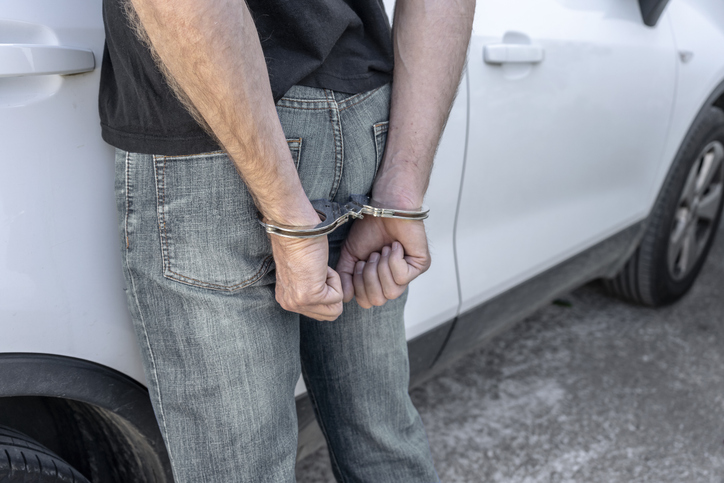x
Our website uses cookies. By continuing to use the site, you agree to our use of these cookies. To learn more about how we use the cookies and how you can manage them, please see our cookies policy.
When facing an arrest in a foreign country, the unfamiliar legal procedures can be extremely daunting. Understanding your rights and knowing the steps you should take can ease the process, ensuring fair treatment and adherence to legal protocols. If you are a UK national arrested in Spain, you will need to understand the Spanish legal system; legal advice from a multi-lingual, experienced Spanish criminal defence lawyer can help you navigate the complexities of your situation, understand the Spanish legal system and Spanish law and break down any communication barriers to ensure your case is dealt with quickly and professionally.
In this guide, we will highlight what happens when you are arrested in Spain, your rights as a UK national, and how long you can be detained in Spain. We will also discuss the consequences of being arrested in Spain, the steps to take if you are arrested in Spain, and how our lawyers at Giambrone and Partners can help.
Click on the links below to each section:
The process that follows being arrested in Spain
Find out your rights should you ever arrested in Spain
There are time limits as to how long an individual can be detained for in Spain
Being arrested in Spain can have detrimental effects on you and your life in the future
Here is what you can do if you are arrested in Spain
Here's how we can assist
In Spain, an arrest typically follows strict procedural steps, beginning with a police officer informing you of the reason for your arrest. Once detained, you will be taken to a police station for questioning. During this period, Spanish police will assess the situation to determine whether formal charges are warranted. It is worth noting that in Spain, an arrest does not automatically mean that charges will be filed, as the police may release individuals after questioning if no substantial evidence is found.
Upon arrival at the police station, you will undergo basic procedures, such as fingerprinting, photographing, and identity verification. You may also be searched and any personal belongings deemed relevant to the investigation may be confiscated. Within this setting, you have the right to a lawyer and an interpreter if you do not understand Spanish. It is advisable to refrain from making statements or signing documents until you have consulted a lawyer, as this protects you from unintentional self-incrimination.
You can seek legal advice from our Spanish criminal lawyers here.

As a UK citizen, you have specific rights when arrested in Spain, in accordance with Spanish law and international conventions. First, you have the right to remain silent during questioning and are not obligated to provide any information that may incriminate you. This right is fundamental and should be exercised to avoid misunderstandings or statements that could be used against you in court.
You are also entitled to legal representation, such as our multi-lingual, multi-jurisdictional Spanish criminal defence lawyers at Giambrone and Partners. If you cannot afford to appoint a lawyer, the state will appoint one for you. Additionally, you have the right to inform a family member or friend of your detention and you may request consular assistance from the British Embassy. Consular officials can provide advice, help you communicate with your family, and offer information about local lawyers who specialise in criminal cases. They cannot, however, offer legal representation or intervene in the judicial process.
Language support is another crucial right. You are entitled to a qualified interpreter during all legal proceedings if you do not speak Spanish. Our Spanish lawyers at Giambrone and Partners can communicate on your behalf and translate important documents, ensuring there are now communication barriers.
The period you can be detained in Spain depends on the nature of the alleged offence. For minor offences, the police typically release individuals within 72 hours. However, for more serious allegations, such as violent crimes, this period may be extended with judicial approval. Generally, a judge must decide within 72 hours whether to release you, set bail, or remand you in custody while investigations continue.
If you are remanded in custody, Spanish law allows the detention period to extend based on the severity of the offence and the complexity of the investigation. For severe crimes, pre-trial detention may last up to two years, with a possible extension of an additional two years in exceptional cases. This period is uncommon and typically reserved for high-profile or intricate cases. During detention, you will have access to your lawyer and can receive visits from family members.
Being arrested in Spain can have significant personal and legal consequences. A criminal record in Spain may impact your ability to travel to other countries, including difficulties with visa applications or work permits in certain jurisdictions. Additionally, a conviction may carry penalties ranging from fines and community service to imprisonment, depending on the severity of the offence.
Moreover, an arrest can affect your reputation and personal relationships, particularly if the charges involve serious offences. Professional consequences may also arise if you work in sectors requiring a clean criminal record. Certain industries, such as finance, law, or education, often enforce strict policies against hiring individuals with criminal records, which could limit future employment opportunities.
In cases where bail is set, failure to comply with bail conditions may lead to re-arrest and stricter penalties. Furthermore, should you abscond or violate bail terms, a European Arrest Warrant (EAW) could be issued, allowing Spanish authorities to pursue you across EU borders. It is crucial to adhere to all legal conditions and cooperate fully with the legal process to avoid exacerbating the situation.
You can enquire about a consultation here

Our legal team understands the complexities of Spanish criminal law and can offer comprehensive support, from initial police station procedures to court representation. Our multi-lingual lawyers (Abogados) are equipped to handle cross-border legal issues and provide clear communication. They ensure that your rights are protected at every stage and help you understand the legal process. This includes advising you during police questioning, ensuring accurate translation services, and representing you in court if the case proceeds to trial.
By working with Giambrone and Partners, you gain access to expert legal advice tailored to your situation, allowing you to make informed decisions and mitigate potential consequences. Our commitment to cross-border cases means that we are prepared to assist UK nationals in Spain with professionalism and discretion, ensuring that each client receives the best possible outcome under Spanish law.
You can find out more by contacting us here.
How Do I Report a Crime in Spain?